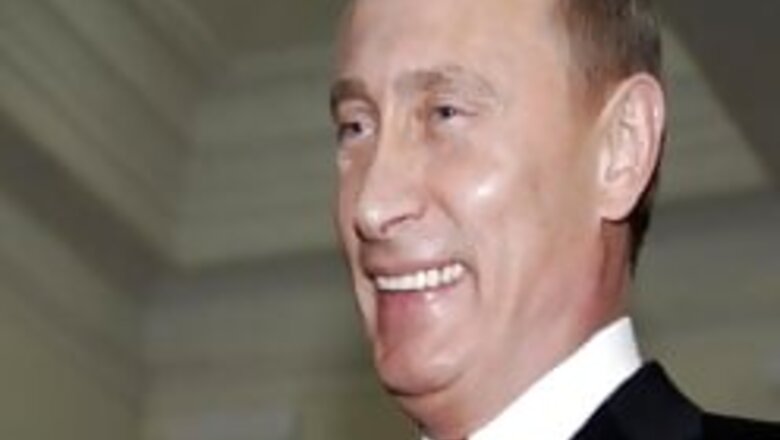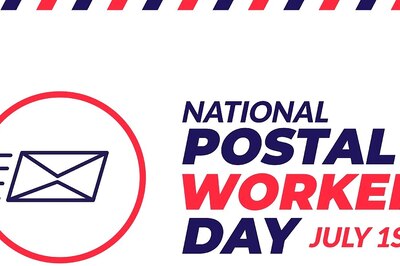
views
Moscow: Russian President Vladimir Putin and US President George Bush are expected to make progress at next week's meeting toward an agreement on civilian nuclear power, a Western official and analysts said.
The two leaders have been promoting nuclear energy as a clean alternative and made similar proposals earlier this year on providing nuclear power to developing countries while building in safeguards for nonproliferation.
"I think it is possible you're going to see further discussion of how to advance that cooperation" a Western diplomat said at the presidents' meeting on the eve of the Group of Eight summit.
The director of the Carnegie Moscow Center, Rose Gottemoeller, was less cautious, calling the potential joint project 'probably the biggest story coming out of the Petersburg summit'.
"This is a field where Russia has a clear technological advantage because over the past 30 years, the US has essentially abandoned nuclear power technology development in the wake of the (1979) Three-Mile Island accident and also the Chernobyl accident in 1986," she said at a round table on US-Russian relations.
In January, Putin proposed establishing an international nuclear center on Russian territory that would provide full fuel cycle services.
He said that the center could be the start of a network of such centers around the world; Russian Nuclear Agency chief Sergei Kiriyenko said there could be up to five such centers in other nations.
At about the same time, Bush introduced his Global Nuclear Energy Partnership, which would provide fresh fuel to countries that agree to use it only for power generation and would recover spent fuel.
An analyst at the Carnegie Endowment for Peace in Washington, Jon Wolfstahl, predicted that Putin and Bush would announce the start of negotiations on cooperation in developing a new generation of nuclear power reactors.
"President Bush is very anxious to move his nuclear energy proposals forward and he sees his relationship with President Putin as a natural way to add momentum," Wolfstahl said in a recent interview with The Associated Press.
"The Russians have probably more modern nuclear reactor technology than we do but they need our endorsement and our cooperation if they are going to bring it to the international market, so there's a natural sort of convergence of interests on this issue."
Russia currently has 31 reactors at 10 nuclear power plants, accounting for about 16 per cent of the country's electricity generation, and Putin has called for raising the share to 25 per cent.
Last month, the atomic energy agency contracted with a military shipbuilding plant to build the world's first floating nuclear reactor near the Arctic port of Severodvinsk.
Gottemoeller said Russian technologies in areas including fast neutron reactors and recycling nuclear fuel 'far outstrip those of other countries including the United States'.
Wolfstahl said that the cooperation had been held up for more than a decade by Washington's objections to Russia's nuclear cooperation with Iran, including construction of the Bushehr atomic power plant.
"Now that Russia has been more cooperative in putting pressure on Iran to abandon its (alleged) weapons program, I think we won't delink the two issues entirely but will not allow the Iran relationship to get in the way of this particular activity," Wolfstahl told the AP.
The Washington Post reported Saturday that a nuclear agreement would allow Russia to import and store nuclear fuel from US-supplied power plants, opening the way to a profitable business.
Russia's hopes to develop such a business have sparked criticism among environmentalists.




















Comments
0 comment